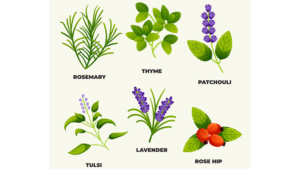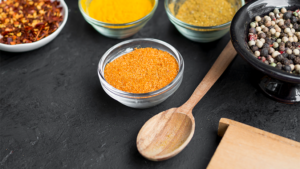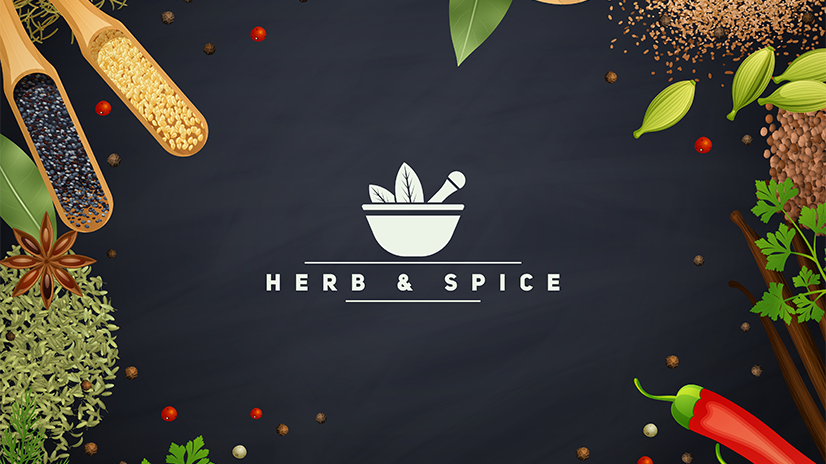What Is the Difference Between Spices And Herbs?
Spices and herbs are often used interchangeably, but they are different types of seasonings that come from different parts of the plant and are processed differently. The seasonings are also used as preservatives and for their medicinal properties. You probably use herbs and spices daily, but do you know the difference? In this article, we will look at the differences between herbs and spices and how they are used.
What Are Herbs?

Herbs are the green leafy parts of a plant used to flavour or garnish dishes. Herbs are often leaves, but they can also include the flowers and stems of plants. Examples of herbs include:
- Sage
- Rosemary
- Thyme
- Parsley
- Curry leaves
- Cilantro
- Lavender
- Basil
Herbs are used for their aromatic and savoury properties. In addition to their use in making delicious foods, they are also used to make fragrances and for their medicinal properties. They are categorized as either medicinal or culinary herbs.
They are fresh, but some can also be used as dried herbs. If you are using dry herbs, it is best to add them towards the end of the cooking process to maximize their aroma and flavour.
What Are Spices?

Spices, on the other hand, are parts of a plant used for colouring, flavouring and preserving food. They come from different plant parts, including the roots, seeds, bark and buds. Examples of spices include:
- Turmeric
- Cinnamon
- Cloves
- Saffron
- Cardamom
- Cumin
The above spices all come from different parts of a plant. Turmeric comes from the root, cloves from the bud, cinnamon from the bark, cumin from the seeds and cardamom from the seed pod. Spices are commonly used in their dried form but can also be used in their fresh form.
Spices often have antimicrobial properties. This means they can kill or stop the growth of microorganisms. This is the main reason spices are used as a food preservative. While spices do not spoil, they have an expiry date and tend to lose flavour with time.
It is important to note that spices also lose flavour when ground. It is, therefore, best to grind your spices when using them instead of buying ground spices from the stores. You can use a grinder or mortar and pestle to grind your spices. Spices also last longer when stored in a cool, dry place and in an air-tight container.
What Are The Main Differences Between Herbs And Spices?
Herbs come from the leafy part of the plant, while spices come from the stem, root, fruit, bark or flower. However, some plants come to produce herbs and spices simultaneously. A great example is coriander and cilantro. Cilantro is the aromatic leaf of the plant, while coriander is the seeds that come from the same plants. Dill leaves can be used as a herb, while the seeds are spices.
Spices Retain Flavor For Longer Than Herbs
Whole spices such as cloves and cinnamon sticks are whole and intact. This means they are not ground or broken down and tend to have a flavour for longer than ground spices and herbs. It is important to note that once you grind a herb or a spice, its surface area increases, exposing it to oxygen. Grinding also releases volatile oils from the spices, which begin to break down once exposed to air hence losing their potency.
Herbs And Spices Grow In Different Regions And Climates
Most spices are grown in tropical climates such as Southeast Asia, the Mediterranean and India. Herbs are also very popular in tropical regions but can also be grown in temperate and arid climates.
How They Are Used In Dishes
Cooking spices and herbs require different methods. Herbs are more delicate, whether fresh or dried. They have a delicate flavour and can be used fresh. On the other hand, spices have a more potent flavour and are always used in their dried form. If you are using dried herbs, it is best to use them at the end of the cooking process to maximize the cooking flavour.
Are you looking to liven up your pantry? At ChefCo, we have all types of spices under the sun. We promise you will find what you want to elevate your dish. We also have different types of grains, foodstuffs, herbs, pulses and oils to make your food shopping easier under one roof.



Leave a Reply